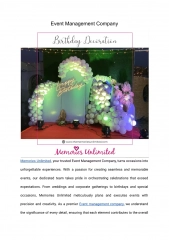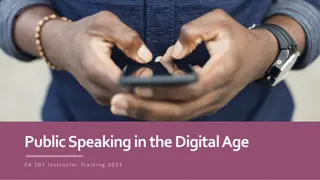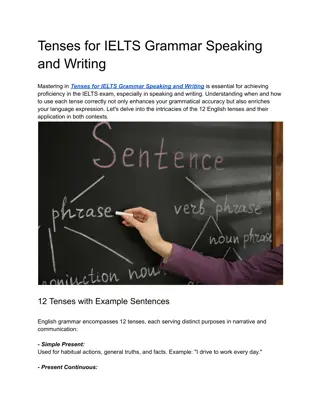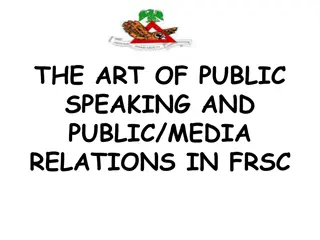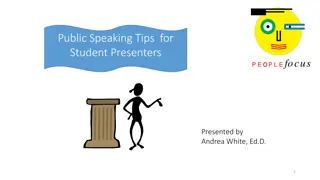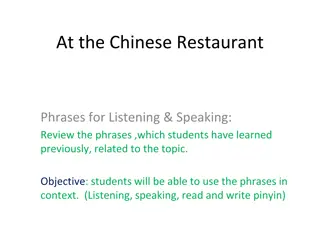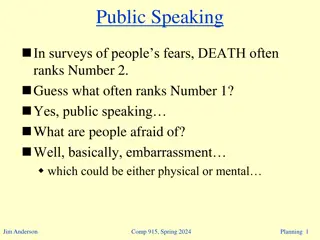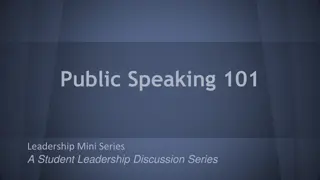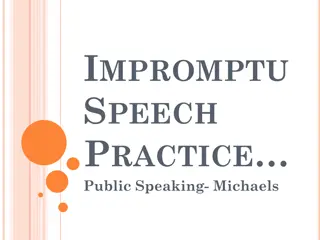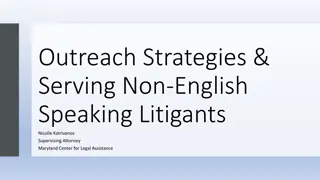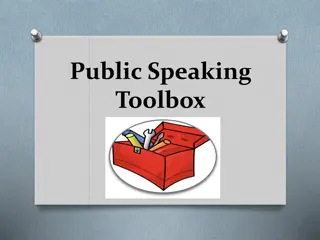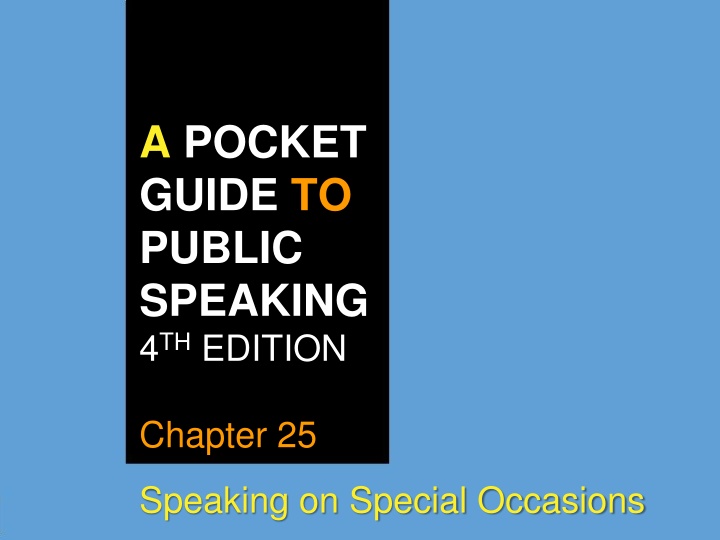
Special Occasion Speeches: Purposes and Tips
Explore the various purposes of special occasion speeches, including entertaining, celebrating, commemorating, inspiring, and setting social agendas. Learn about speeches of introduction, acceptance, presentation, roasts, toasts, eulogies, and more with helpful tips for each type.
Download Presentation

Please find below an Image/Link to download the presentation.
The content on the website is provided AS IS for your information and personal use only. It may not be sold, licensed, or shared on other websites without obtaining consent from the author. If you encounter any issues during the download, it is possible that the publisher has removed the file from their server.
You are allowed to download the files provided on this website for personal or commercial use, subject to the condition that they are used lawfully. All files are the property of their respective owners.
The content on the website is provided AS IS for your information and personal use only. It may not be sold, licensed, or shared on other websites without obtaining consent from the author.
E N D
Presentation Transcript
A POCKET GUIDE TO PUBLIC SPEAKING 4THEDITION Chapter 25 Speaking on Special Occasions
Purposes of Special Occasion Speeches Speech to entertain Lighthearted, amusing speech Offer a certain degree of insight Speech to celebrate (person, place, event) Praise the subject of the celebration Offer a degree of ceremony
Purposes of Special Occasion Speeches (cont.) Speech to commemorate (event or person) Offer remembrance and tribute Speech to inspire Motivate by examples of achievement/heroism Speech that sets a social agenda Articulate/reinforce group s goals and values
Speeches of Introduction Prepares the audience for the main speaker Describe the speaker s background and qualifications. Briefly preview the speaker s topic. Invite the audience to welcome the speaker. Be brief.
Speeches of Acceptance Made when receiving an award Prepare in advance when possible. Express what the award means to you. Express gratitude.
Speeches of Presentation Delivered when an award is given Communicate the meaning of the award. Explain why the recipient is receiving it.
Roasts and Toasts Roast Humorous tribute to a person Series of speakers jokingly poke fun Toast Brief tribute to a person or event Both call for short celebratory speeches.
Roasts and Toasts (cont.) Prepare. As you practice, time the speech. Highlight remarkable tributes of the honoree. Be positive and be brief.
Eulogies and Other Tributes Eulogies commemorate and console. Balance delivery and emotions. Refer to the deceased s family. Be positive but realistic.
After-Dinner Speeches Lighthearted, entertaining speech Listeners may expect To gain insight into the topic; An outline of the group s priorities/goals.
After-Dinner Speeches (cont.) Recognize the occasion. Do not deliver a canned speech. Keep remarks sufficiently low-key. Listeners are digesting the meal.
Speeches of Inspiration Seek to uplift audience members Common examples: Sermons Commencement addresses Pep talks Nomination speeches
Speeches of Inspiration (cont.) Appeal to audience members emotions. Use real-life stories. Be dynamic.
Speeches of Inspiration (cont.) Make your goal clear. Consider a distinctive organization device. Close with a dramatic ending.

